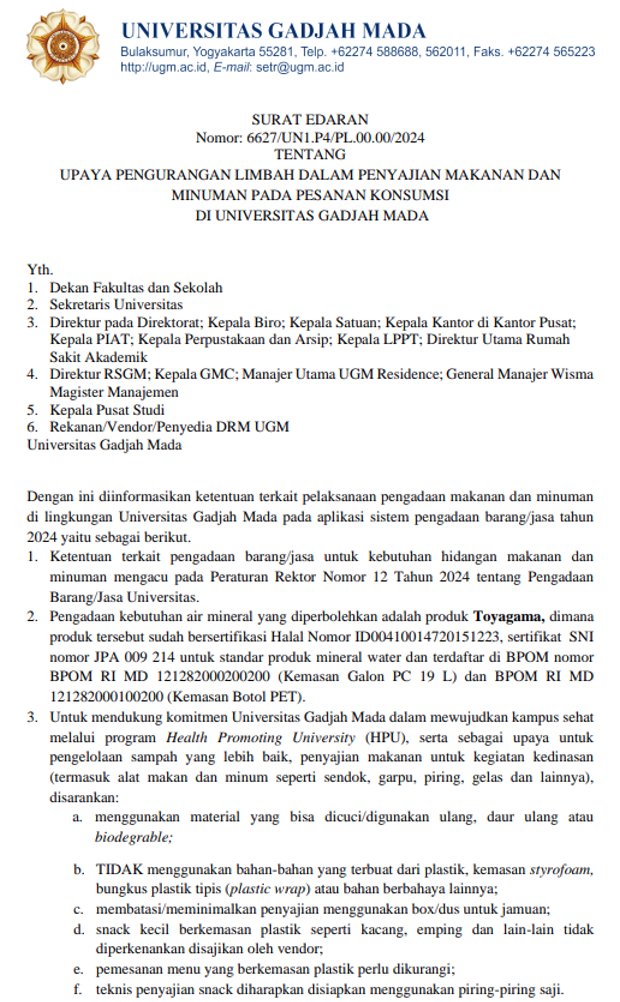Universitas Gadjah Mada (UGM) has established policies that promote the ethical sourcing of food and supplies, reflecting its commitment to sustainability and responsible consumption.
In 2020, UGM issued Circular Letter Number 1791/UN1.P/KJM/BU/2020 on Sustainable Lifestyle. This policy encourages the university community to prioritise purchasing from ethical food producers and support campus eco-friendly practices. The regulation (point 6a) states that purchasing seasonal local fruits and vegetables and supporting local businesses are encouraged.
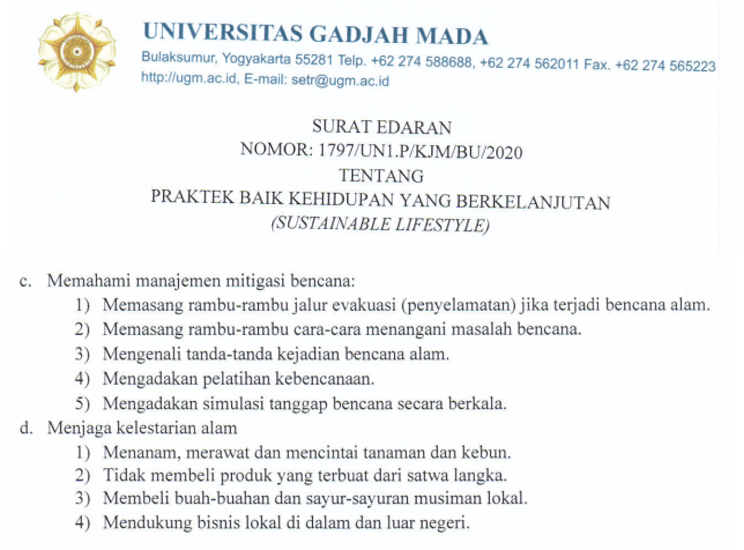
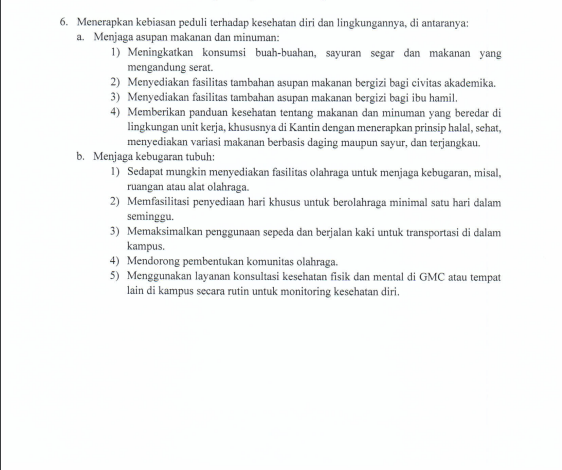
UGM’s procurement processes are guided by regulations emphasizing sustainability:
- Rector Regulation Number 8 of 2020: Introduced to incorporate economic, social, and environmental factors into the procurement of goods and services.
- Rector Regulation Number 12 of 2022: Updates the previous regulation by reinforcing sustainable practices, such as minimizing harm to health, air, soil, and water quality, and ensuring the responsible use of natural resources.
- Rector Regulation Number 12 of 2024: An update to Rector Regulation Number 12 of 2022, governing the university’s Procurement of Goods and Services. This regulation revises the procurement policies and procedures within UGM, focusing on sustainability, efficiency, and transparency in the procurement process.
Article 3 of Rector Regulation Number 12 of 2024, emphasizes the integration of sustainability aspects into the procurement of goods and services. It states that the procurement of goods and services (including food) must enhance the use of domestic products, utilize products from Micro, Small, and Medium Enterprises (MSMEs), and encourage the participation of the creative industry.
In Article 75 of Rector Regulation Number 12 of 2024, it states:
(1) The procurement of goods/services is carried out with consideration for sustainability aspects.
(2) The sustainability aspects referred to in paragraph (1) consist of:
a. Economic aspects, including the production costs of goods/services throughout their lifespan;
b. Social aspects, including the empowerment of small businesses, ensuring fair working conditions, community/local business empowerment, equality, and diversity; and
c. Environmental aspects, including the reduction of negative impacts on health, air quality, soil quality, water quality, and the use of natural resources in accordance with the provisions of applicable laws and regulations.
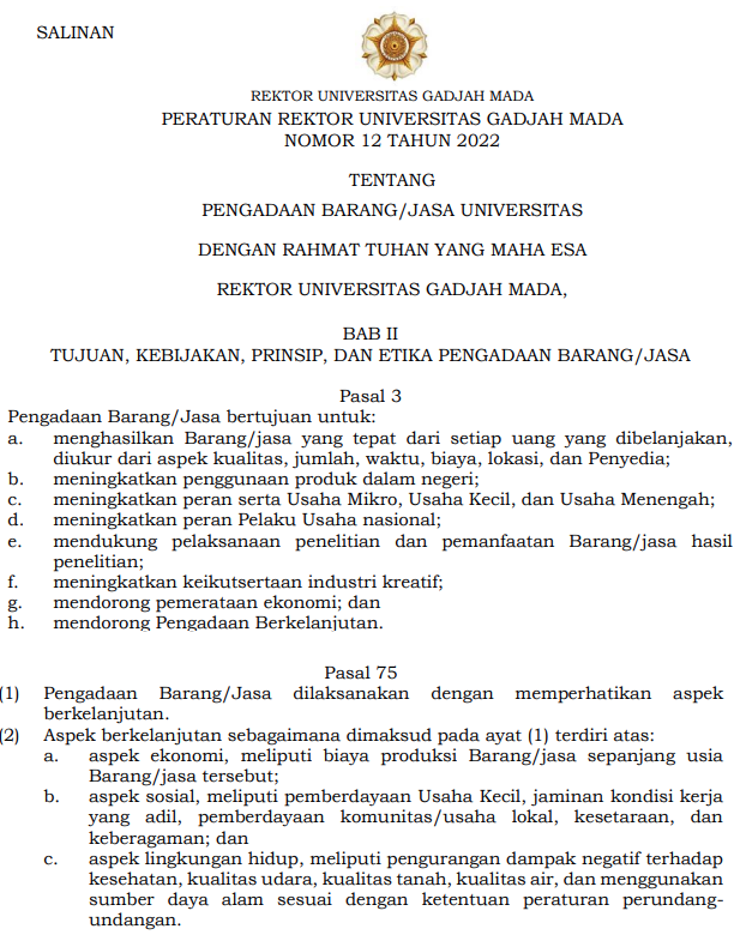
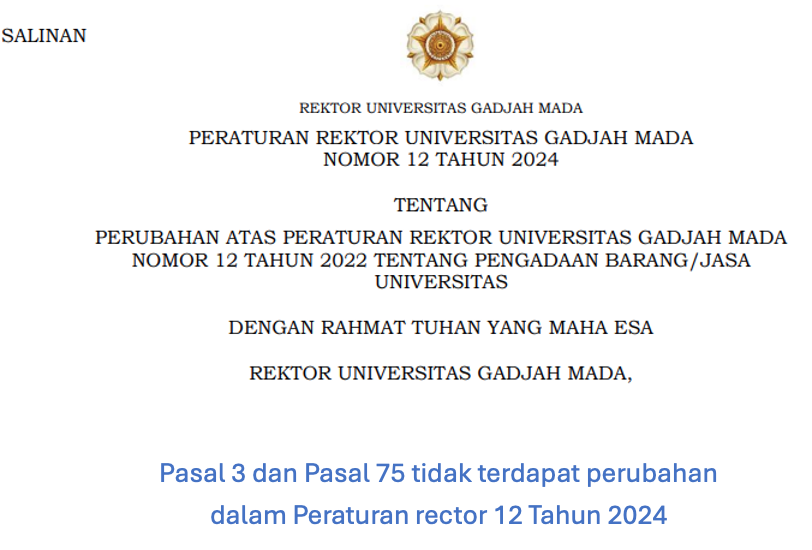
In 2024, the Vice Rector issued a Circular on Efforts to Reduce Waste in the Presentation of Food and Beverages for Consumption Orders at UGM (Number 6627/UN1/P4/PL.00.00/2024), stating that:
- The procurement of mineral water is limited to Toyagama products (point 2, page 1). Toyagama is a locally produced mineral water brand (owned by UGM) with an environmentally friendly production process and is certified by the Indonesian National Standard (SNI).
- Food presentation for official activities is recommended as follows (point 3, pages 1 and 2):
a. Use food containers that are reusable or biodegradable.
b. Prioritize the use of local ingredients to support local farmers and producers.
c. Avoid single-use plastics such as straws, cups, and cutlery in food packaging.
d. Utilize buffet-style serving instead of individually packed meals to minimize packaging waste.
e. Encourage the use of environmentally friendly catering services with established sustainable practices.
f. Ensure leftovers are appropriately managed, such as through donation programs or composting initiatives.
These measures aim to align with UGM’s sustainability goals by reducing waste and supporting environmentally friendly practices.
